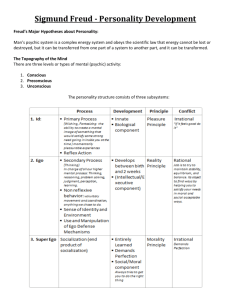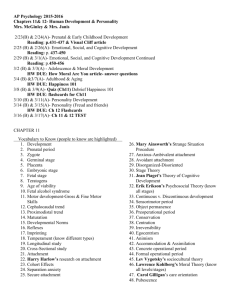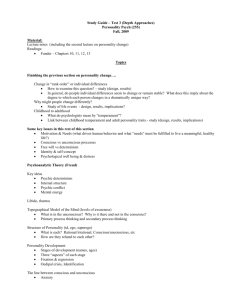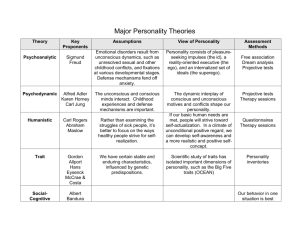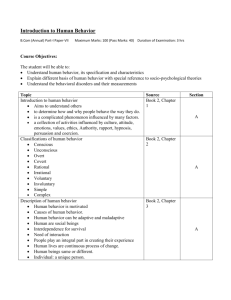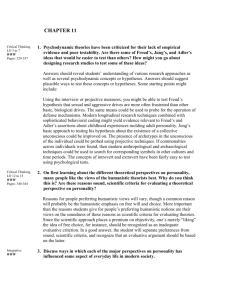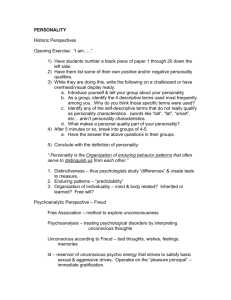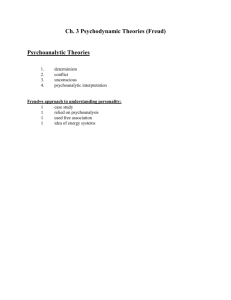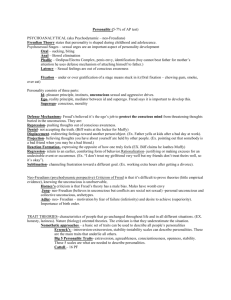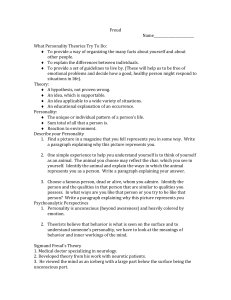Chapter 2 - SIGMUND FREUD
advertisement
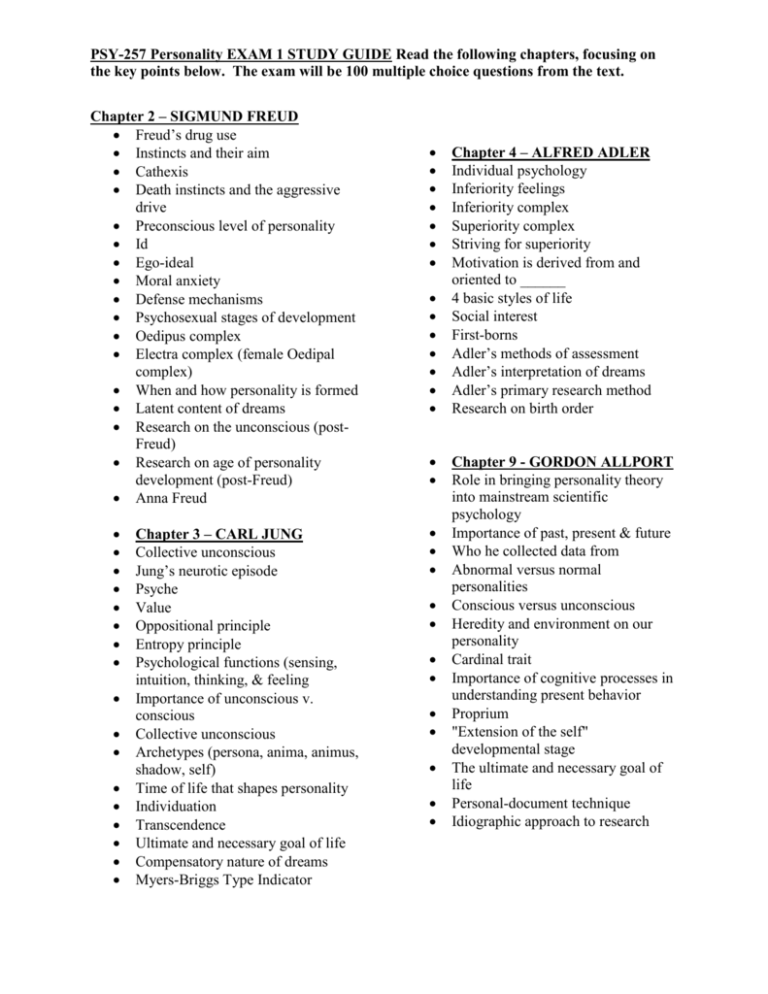
PSY-257 Personality EXAM 1 STUDY GUIDE Read the following chapters, focusing on the key points below. The exam will be 100 multiple choice questions from the text. Chapter 2 – SIGMUND FREUD Freud’s drug use Instincts and their aim Cathexis Death instincts and the aggressive drive Preconscious level of personality Id Ego-ideal Moral anxiety Defense mechanisms Psychosexual stages of development Oedipus complex Electra complex (female Oedipal complex) When and how personality is formed Latent content of dreams Research on the unconscious (postFreud) Research on age of personality development (post-Freud) Anna Freud Chapter 3 – CARL JUNG Collective unconscious Jung’s neurotic episode Psyche Value Oppositional principle Entropy principle Psychological functions (sensing, intuition, thinking, & feeling Importance of unconscious v. conscious Collective unconscious Archetypes (persona, anima, animus, shadow, self) Time of life that shapes personality Individuation Transcendence Ultimate and necessary goal of life Compensatory nature of dreams Myers-Briggs Type Indicator Chapter 4 – ALFRED ADLER Individual psychology Inferiority feelings Inferiority complex Superiority complex Striving for superiority Motivation is derived from and oriented to ______ 4 basic styles of life Social interest First-borns Adler’s methods of assessment Adler’s interpretation of dreams Adler’s primary research method Research on birth order Chapter 9 - GORDON ALLPORT Role in bringing personality theory into mainstream scientific psychology Importance of past, present & future Who he collected data from Abnormal versus normal personalities Conscious versus unconscious Heredity and environment on our personality Cardinal trait Importance of cognitive processes in understanding present behavior Proprium "Extension of the self" developmental stage The ultimate and necessary goal of life Personal-document technique Idiographic approach to research Chapter 11 - ABRAHAM MASLOW Humanistic psychology Importance of human motivation Hierarchy of needs (5 levels) o Order o Number of needs dominating our personality at one time o Lower versus higher needs o Esteem needs o Self-actualization o Metamotivation o % of the population Maslow believed to be truly selfactualized o Peak experiences o Human nature - free-will versus determinism o Criticism of sample sizes used Chapter 12 - CARL ROGERS In addition to Rogers, who founded humanistic psychology? Conscious versus unconscious Tendency to actualize Process of maturation Phenomenology "The only way to assess personality..." Positive regard Unconditional positive regard Incongruence and congruence (self & environment) Characteristics of fully-functioning people Importance of childhood experiences versus later experiences View on experimental methods and interviews Evaluating person-centered therapy the self-concept Q-sort technique Real self and ideal self incongruence Research on person-centered therapy Chapter 13 - GEORGE KELLY Personal construct theory Importance of our interpretations People as scientists Constructs Range of convenience Individuality corollary Human nature - how Kelly treated people Primary assessment technique "Credulous attitude" belief Role Construct Repertory (REP) Popularity of personal construct theory in US versus other countries Criticism - exclusion of emotional factors


